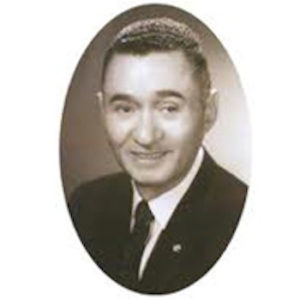
Theodore McNeal
Theodore McNeal was born on this date in 1905. He was a Black Union organizer and politician.
He was born in Helena, AR, and after graduating from high school in his hometown, he moved to St. Louis to work at a ceramics and brick plant. A few years later, he took a temporary position working on a Pullman car. In 1930, McNeal was one of the first St. Louis-area Pullman Porters to join the International Brotherhood of Sleeping Car Porters. Seven years later, McNeal and other union officials succeeded in signing a hard-earned contract between the Pullman Company and the Brotherhood, a promised agreement between a large American company and a predominantly Black union.
McNeal joined the union's national staff as a field representative and chief negotiator, and in 1950, he became national vice president of the union. During World War II, he began promoting fair employment practices for Blacks in St. Louis. McNeal had earned some local recognition as a civil rights leader when he decided, at the age of 54, to enter politics. In 1960, he challenged incumbent senator Edward J. “Jellyroll” Hogan for his Seventh District Senate seat. He defeated Hogan in the Democratic primary by a six-to-one ratio, becoming the first African American elected to the Missouri Senate.
For the next ten years, McNeal served with distinction. He led the passage of the Fair Employment Practices Act (1961) and supported the creation of the University of Missouri-St. Louis (1964), and helped pass the state Civil Rights Code (1965). In 1970, McNeal retired from politics and accepted an appointment to the University of Missouri's governing board. He resigned from the board in 1973 to become president of the St. Louis Board of Police Commissioners.
McNeal's numerous awards and honors include honorary degrees from the University of Missouri, Lincoln University, and Lindenwood University. He died on October 25, 1982, following a lengthy illness.